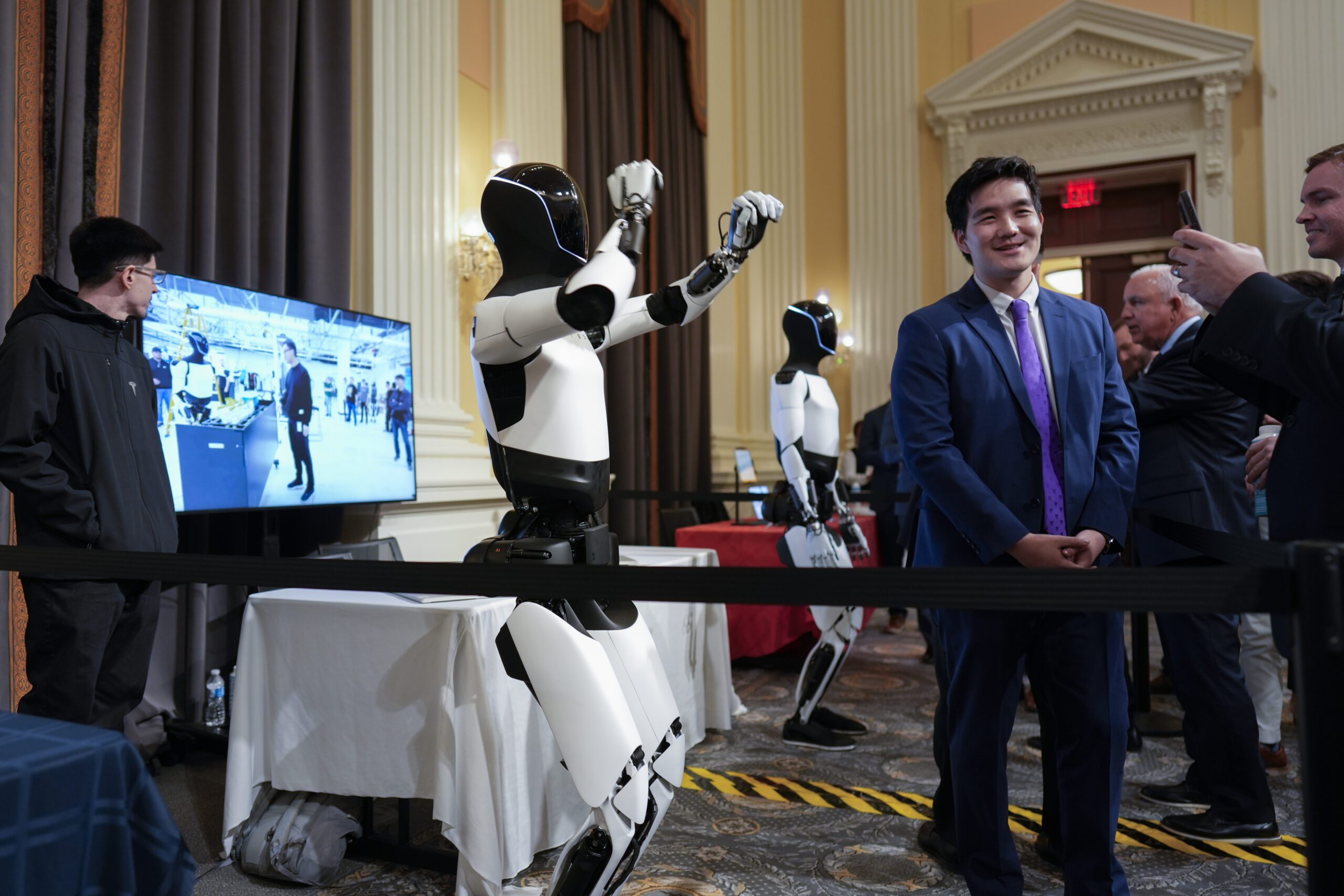Race Against the Dragon: US Robotics Titans Demand National AI and Robotics Roadmap to Outpace China
Companies
2025-04-06 12:00:14Content

In a strategic move to maintain technological leadership, American robotics pioneers are championing a comprehensive national robotics strategy. The initiative aims to establish a dedicated federal office that will propel the robotics industry forward, particularly in response to China's aggressive push to dominate intelligent robotics technology.
Leading tech companies, including innovative firms like Tesla and Boston Dynamics, are at the forefront of this national effort. Their goal is to ensure the United States remains a global leader in robotics innovation, creating a coordinated approach to research, development, and industrial implementation.
The proposed federal office would serve as a central hub for robotics advancement, providing strategic guidance, funding support, and a unified vision for the industry. This comes at a critical time when international technological competition is intensifying, with nations like China making significant investments in robotic technologies across various sectors.
By creating a centralized strategy, American robotics companies hope to accelerate innovation, attract top talent, and maintain the country's competitive edge in this rapidly evolving technological landscape.
Robotic Revolution: America's Strategic Leap into the Future of Intelligent Automation
In the rapidly evolving landscape of technological innovation, the United States stands at a critical crossroads, facing unprecedented challenges and opportunities in the realm of robotics and artificial intelligence. As global technological competition intensifies, American tech pioneers are mobilizing to reshape the national approach to robotic development and strategic positioning.Transforming National Technological Competitiveness Through Robotic Innovation
The Emerging Robotics Landscape
The contemporary technological ecosystem is witnessing an unprecedented transformation, with robotics emerging as a pivotal domain of strategic national importance. Leading technology corporations and innovative startups are converging to establish a comprehensive national framework that will propel the United States to the forefront of robotic technological advancement. Cutting-edge research institutions and private sector innovators are collaborating to develop sophisticated robotic systems that transcend traditional manufacturing and industrial applications. These next-generation robots are designed to integrate advanced artificial intelligence, machine learning algorithms, and adaptive cognitive capabilities that can revolutionize multiple sectors, from healthcare and manufacturing to space exploration and disaster response.Strategic National Robotics Infrastructure
Recognizing the critical importance of maintaining technological supremacy, industry leaders are advocating for the establishment of a dedicated federal robotics office. This proposed institutional framework would serve as a centralized hub for coordinating research, facilitating public-private partnerships, and developing comprehensive policy guidelines that support sustainable robotic innovation. The proposed national robotics strategy encompasses multifaceted objectives, including accelerating research and development, creating robust funding mechanisms, and establishing standardized training programs to cultivate a highly skilled workforce capable of driving technological breakthroughs.Geopolitical Technological Competition
The current robotic landscape is characterized by intense international competition, with nations like China making substantial investments in intelligent robotic technologies. American technology leaders recognize the imperative of maintaining a competitive edge through strategic investments, collaborative research initiatives, and innovative policy frameworks. By proactively addressing technological challenges and creating an ecosystem that nurtures innovation, the United States can position itself as a global leader in robotic development. This approach requires a holistic strategy that balances technological advancement with ethical considerations, workforce development, and long-term economic sustainability.Technological Innovation and Economic Transformation
The emergence of advanced robotic systems represents more than a technological milestone; it signifies a fundamental reimagining of industrial capabilities and economic potential. Companies like Tesla and Boston Dynamics are at the forefront of this transformation, developing robots that can adapt, learn, and perform complex tasks with unprecedented precision and efficiency. These technological innovations promise to revolutionize multiple industries, creating new economic opportunities, enhancing productivity, and addressing critical challenges in manufacturing, healthcare, agriculture, and beyond. The potential economic impact extends far beyond immediate technological achievements, representing a fundamental restructuring of how humans interact with intelligent machines.Ethical Considerations and Societal Impact
As robotic technologies continue to advance, industry leaders and policymakers must simultaneously address complex ethical considerations. The integration of intelligent robotic systems raises critical questions about workforce displacement, privacy, algorithmic bias, and the broader societal implications of increasingly autonomous technological systems. Developing comprehensive regulatory frameworks and ethical guidelines will be crucial in ensuring that robotic innovations serve humanity's broader interests while mitigating potential risks and unintended consequences.RELATED NEWS
Companies

Green Fuel Showdown: Shipping Giants Demand Brakes on Biofuel Expansion
2025-02-17 05:00:00
Companies

Analysts Reveal: Albertsons Stock Poised to Dominate Consumer Staples Market
2025-03-30 12:57:08
Companies

Glennon Small Cap Fund Reveals Surprising Net Tangible Asset Performance for March 2025
2025-03-09 21:27:33





